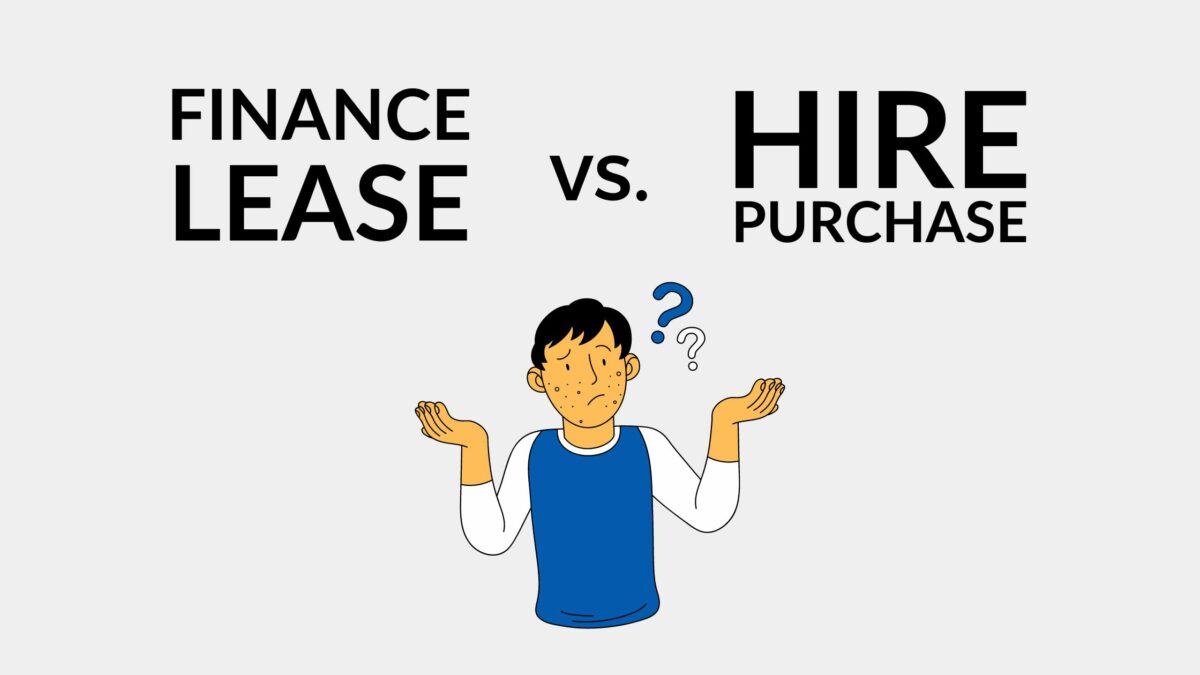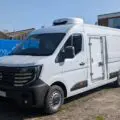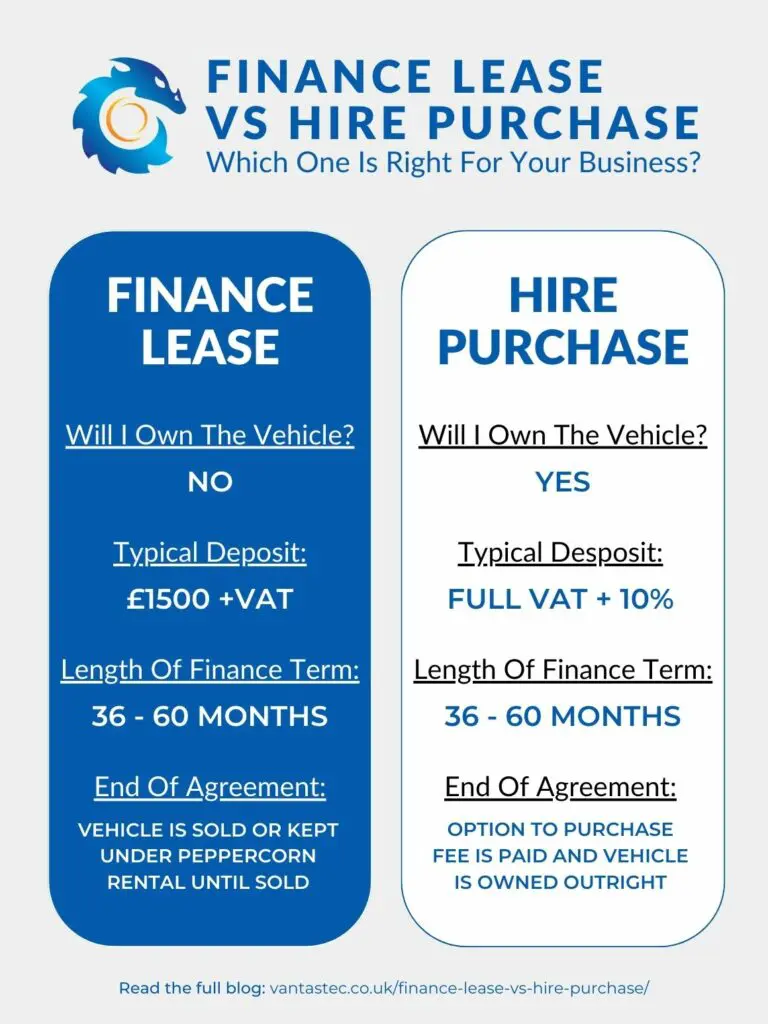
Finance Lease or Hire Purchase: Which Is Right For You?
Finance Lease Vs Hire Purchase: A Side-By-Side Comparison
Whether you’re looking for a panel van, a crew cab, refrigerated or a bespoke conversion, you might see the terms Finance Lease and Hire Purchase everywhere you look when it comes to financing a vehicle. We get a lot of questions about what the difference between the two actually are, so we’ve explained it the best we can in this week’s Finance Friday. There’s even a quick table to compare the differences quickly.
Looking To Finance Your Next Van? Click Here To Browse Our Inventory
What is a Finance Lease?
A finance lease is a method of financing an asset through regular monthly payments with a minimal upfront cost. The vehicle is ultimately owned by the finance company and then hired out to you.
The first payment in a finance lease agreement will be £1500 + VAT, though you can choose to pay more for lower monthly payments. Monthly payments from then on will be the figure agreed +VAT. This differs to Hire Purchase, where you pay all the vehicle’s VAT in one go at the very beginning. There are also options for a balloon at the end, which we’ll explain later on.
Because you don’t own the vehicle, there are three things that can happen at the end of your lease agreement:
- You can return the vehicle to the lessor, who then sells it and refunds any surplus sale proceeds to you, as a rebate of rentals (usually around 95% of the surplus sale)
- You can act as an agent for the finance company and arrange for the sale of the vehicle to an independent third party. The finance company receives the full sales proceeds and refunds you a fixed percentage of the surplus, just like the option above.
- A peppercorn rental, which allows you to extend your lease on a low-cost yearly period
Peppercorn Rental
If at the end of your lease period, you decide you quite like the van and want to keep it on the lease, the finance company can arrange something called a peppercorn rental. A peppercorn rental can be up to three years after the end of the original lease period.
The yearly payment for the vehicle when it’s on a peppercorn rental will only be worth one month of what you paid before. For example, if you paid £250 + VAT each month in the time of your lease, you would pay £250 + VAT for the year after your lease, and again if you decided to carry it on for the year after.
Once your peppercorn rental is over, the van is then sold like above, where you receive the surplus.
Finance Lease Advantages and Disadvantages
Finance leases are great because they offer a lot of flexibility. You can build up equity in the vehicle without owning it. Multiple options at the end of the contract offer a great deal of choice for what you do after the lease has ended. The monthly rentals are also up to 100% tax deductible and the addition of a balloon can reduce the monthly payments.
Finance leases aren’t so good if you’re looking to own the vehicle as the van will be owned by the finance company that leases it to you. If you choose to take a balloon payment, there is always the risk the value of the vehicle won’t be as much as the balloon, meaning you might have to pay extra instead of getting some money back.
Personal Contract Purchase
If you’re familiar with car finance but not van finance, you may have heard about personal contract purchase (PCP). Sometimes, our customers confuse finance lease with PCP, but it’s important to note that in a finance lease, you won’t own the vehicle at the end. If you want to own the van at the end of the lease you should probably look more into…
What is a Hire Purchase?
Hire purchase (HP) is another type of asset finance that you’ll see when you shop around for vehicles. Similarly to finance lease, you’ll pay monthly; however after the very last payment and the option to purchase fee, the van becomes yours. You might also see this called Lease Purchase elsewhere but it’s the same thing, just with a different name.
The very first payment in a hire purchase will be the VAT of the vehicle + 10%, though it’s possible to pay more initially to reduce your monthly payments. For this reason, hire purchases work well for VAT-registered companies who are able to reclaim the tax back.
It’s worth mentioning while we call it an option to purchase fee, not doing so means you don’t get the vehicle, or any of the benefits of the sale like you would in a finance lease. It’s also a small figure, so if you do decide you no longer want the van, the van is yours to sell or part exchange for a newer model once the option to purchase fee is paid.
Hire Purchase Advantages and Disadvantages
Hire purchase agreements are great if you want to own your vehicle at the end. The monthly payments aren’t subject to VAT either as it’s all been paid in the beginning.
On the contrary, owning the vehicle may prove troubling if you decide you don’t like it. As you’ll be fully liable for it. Because the VAT is all upfront too, it’s more costly to start the finance.
Differences at a glance
| Finance Lease | Hire Purchase | |
| Will I own the vehicle? | No | Yes |
| What is my first payment? | £1500 + VAT | VAT of vehicle + 10% |
| How long can my agreement be? | Between 3 and 5 years (+ up to another 3 years if choosing peppercorn rental) | Between 3 and 5 years |
| What are my monthly payments? | Amount agreed + vehicle VAT | Only amount agreed, VAT is paid upfront |
| What happens at the end of the finance agreement? | The vehicle is sold and I receive around 95% of the surplus sale or I can continue the lease on a peppercorn rental | I pay the option to purchase fee and the vehicle is mine |
What Is A Balloon Payment?
At the beginning of your lease agreement, you might be asked if you want a balloon. Balloon payments are a way of bringing down the monthly payments by paying a larger amount at the end. Balloon payments are also based on the predicted value of the vehicle and have some mileage restrictions.
You’ll find this commonly on finance lease arrangements; when the vehicle is sold at the end, the balloon will come out of the value the vehicle is sold for.
For this reason, we tend to go lower than advised with balloon payments, just in case anything unforeseen happens to the value of the van in the future. A higher balloon means lower monthly payments, but it also means you get less back when you consider the cost of the balloon taken out of the surplus.
Finance Lease vs Hire Purchase: Which one is best for me?
While we can’t tell you which finance deal is best for you, we can give you all the information you need to make an informed choice for which will be better for your business.
A good consideration is whether you’re VAT registered. Being able to reclaim the VAT back in the next financial quarter can help you decide in picking between hire purchase and finance lease. It’s also worth thinking about whether you want to own the van at the end too.
Ultimately, the van and the finance package needs to be suitable for your business, so have a read back through and think about what will benefit you the most financially.
We’re always on hand to answer any of your questions and give you all the information about lease and HP agreements so you can feel comfortable in your choice. We can also ask you a few questions to help prompt you with things to think about, so if you’re struggling, let us know and we’ll be happy to help.
Related Posts:




I need advise on start up business finance for a brand new eco van. I’m looking at Mercedes e sprinter, I wish to convert for street trading which involves installing electrics, solar panels, interior adapted and outside wrapped and lighting. I’m going to start sole trader. What is the advice on how to make the most of eco tax benefits on which agreement? Is it personal or business in sole trader? What is going to allow the van to be converted? Any quotes please based on basic average prices.
Hi Leanne,
Thanks for your comment.
Unfortunately, we’re unable to offer financial advice on the tax benefits of either plan. We recommend consulting an independent financial advisor who’ll be able to give you more tailored guidance.
Both finance lease and hire purchase agreements allow your van to be converted. However, with a finance lease agreement, you’ll need to sell the vehicle at the end of the term to a non-related third party. Having bespoke equipment fitted to your van might make it more difficult to sell. With a Hire Purchase agreement, you simply own the van outright at the end. So, you can keep it or do with it as you please.
We hope this helps.
Take care,
Vantastec
Hi,
If I were to take a finance lease option and had an accident which meant the vehicle was a total loss. Would any equity in the vehicle come to me?
For example: if after say 3 years of making payments I had an accident and the vehicle was total loss and had a market value of £30,000 but the remaining finance was £10,000. Would the £20,000 equity come to me or not?
Hi Tom,
Thanks for you comment!
In regards to the £20,000 equity if the vehicle was written off, yes it would go to you – minus a 2.5% “sale of vehicle” charge by the finance company to remove it from the lease agreement.
Using the same example as above, 2.5% of £20,000 is £500. So, the total amount coming back to you would be £19,500.
We hope this helps!